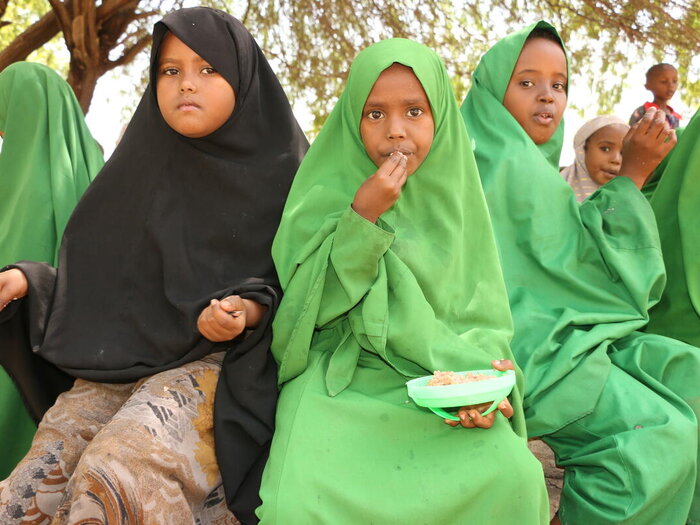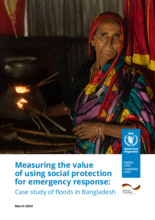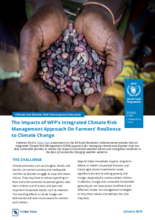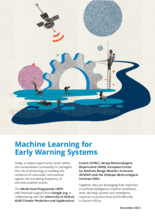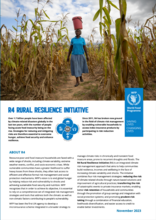Kenya
- 35.6%
- of people live on less than US$1.90 a day
- 29%
- of children in rural areas are stunted
- 48.5 million
- population
A decade of rapid economic growth, the inclusion of food and nutrition security in the government’s ‘big four’ priorities, constitutional changes that devolve administrative responsibilities to county governments and the country’s openness to innovation offer opportunities for the achievement of Sustainable Development Goal 2 on zero hunger and improved nutrition in Kenya. However, even though the country has recently acquired lower-middle-income status, the increased wealth has not benefited all Kenyans equally. Over one third of the population still lives under the international poverty line and social, economic and gender disparities remain.
Access to adequate quantities of nutritious food remains a challenge for many, especially in arid and semi-arid regions which make up 80 percent of the country’s land area. Factors include rapid population growth – at a rate of 2.9 percent a year – climate change, stagnating agricultural production and inefficient food systems. Food insecure families typically live in rural areas, are poor and depend on daily agricultural labour for income. Families headed by women are more likely to be food insecure than those headed by men.
What the World Food Programme is doing in Kenya
-
Crisis response
-
WFP provides refugees living in Kenyan camps with unconditional food and nutrition assistance through cash and food transfers, while investing in solutions that increase refugees’ self-reliance including supporting livelihoods diversification. WFP will only undertake relief assistance in the country in exceptional circumstances in the event of a shock that exceeds national capacities.
-
Resilience building
-
WFP supports resilient food system by providing conditional food or cash assistance in food insecure communities to fill their immediate food gaps as they create climate-resilient assets for increasing production and diversifying livelihoods. WFP also supports smallholder farmers in accessing markets, agricultural inputs, credit and technologies, and works with traders and retailers to address inefficiencies in food supply chains.
-
Capacity strengthening
-
WFP supports national and county government authorities in ensuring that their respective safety nets and nutrition action plans are inclusive, integrated and effective at reducing poverty and hunger and that the emergency preparedness, response and recovery mechanisms can meet the humanitarian needs of crisis-affected populations.
-
Service delivery
-
WFP works to ensure that government, humanitarian and development partners can benefit from effective and cost-efficient logistics services – including air transport, common coordination platforms and improved commodities supply chains – to improve the delivery of relief to refugees and the quality of health services provided by the Government.
Kenya news releases
Go to pagePartners and donors
For questions or feedback on WFP’s assistance:
- Call for free: +254 800-722446
- SMS: +254 707-722446
- Email: kenya.feedback@wfp.org
Find out more about the state of food security in Kenya
Visit the food security analysis pageOperations in Kenya
Contacts
Office
United Nations Complex, Gigiri P.O. Box 44482 – 00100
Nairobi
Kenya

